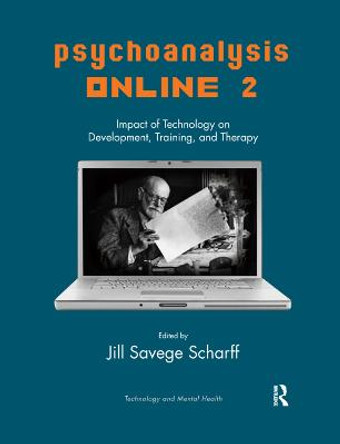Description
Psychoanalysis Online 4: Teleanalytic Practice, Teaching, and Clinical Research brings a systematic, qualitative research perspective to the question of the effectiveness of teletherapy, teleanalysis, and teleteaching. It suggests that, contrary to some traditional arguments, effective treatment, teaching, and supervision can take place remotely; that affect and imagination are more important than physical presence.
Providing theories of therapeutic action as well as philosophical reflections, the book features examples of online clinical cases, including crisis interventions by email, and aims to stimulate openness to innovation, responsible process and review. Each contributor presents their clinical qualitative research and survey study findings. The Bernardi Three-Level Model, developed for assessing therapeutic change in the traditional analytic setting, is applied to the study of teleanalysis with different patients. It is found that, in videoconference or even in email communication, the sense of closeness in the therapeutic encounter does not depend on physical proximity but on integrity and commitment.
The book concludes with research findings on the effectiveness of videoconference compared to in-the-classroom settings for teaching psychodynamics, supervising psychotherapy, and conducting psychotherapy with Chinese students. It will be of great interest to a variety of professionals and researchers who practise remotely, with particular relevance for those situated in the fields of psychoanalysis and psychotherapy.
About the Author
Jill Savege Scharff, MD, FABP (USA) is an adult and child psychoanalyst, co-founder of the International Psychotherapy Institute (IPI) and the International Institute for Psychoanalytic Training (IIPT), and author and editor of books on object relations, individual, couple and family therapy, including The Interpersonal Unconscious and Psychoanalysis Online Volumes 1, 2 and 3 (Karnac).
Reviews
"This volume continues to sustain and develop a vital dialogue about tele-therapy or tele-analysis. Anyone involved in this challenging development of 'the reach' of psychotherapy will find these chapters in the forefront of responsible considerations about how the mental health professions become on the one hand part of a changing world without compromising the integrity of the psychotherapeutic process." --Christopher Bollas, author of Meaning and Melancholia: Life in the Age of Bewilderment.
"This volume provides extensive clinical, pedagogical and research documentation of the premise that 'the sense of closeness in the therapeutic encounter does not depend on physical proximity but on integrity and commitment.' For those of us who are curious about how other cultures both confirm and modify our Western psychoanalytic theoretical principles, and who have mastered the new modalities that have improved our teaching, this volume offers hope that others will feel encouraged to stretch themselves in order to ensure the future of psychoanalysis in the wider world." --Ralph Fishkin, Secretary, American Psychoanalytic Association.
"This is an excellent, broad ranging edited collection of papers from experienced clinicians who generously share their clinical research experience on how technology can facilitate and support a psychoanalytic process, supervision and teaching. It should be essential reading for all clinicians and trainers so as to stimulate thinking about the interface of psychoanalytic practice and technology." --Professor Alessandra Lemma, Psychoanalysis Unit, University College London.
Book Information
ISBN 9781138312425
Author Jill Savege Scharff
Format Paperback
Page Count 182
Imprint Routledge
Publisher Taylor & Francis Ltd
Weight(grams) 294g






